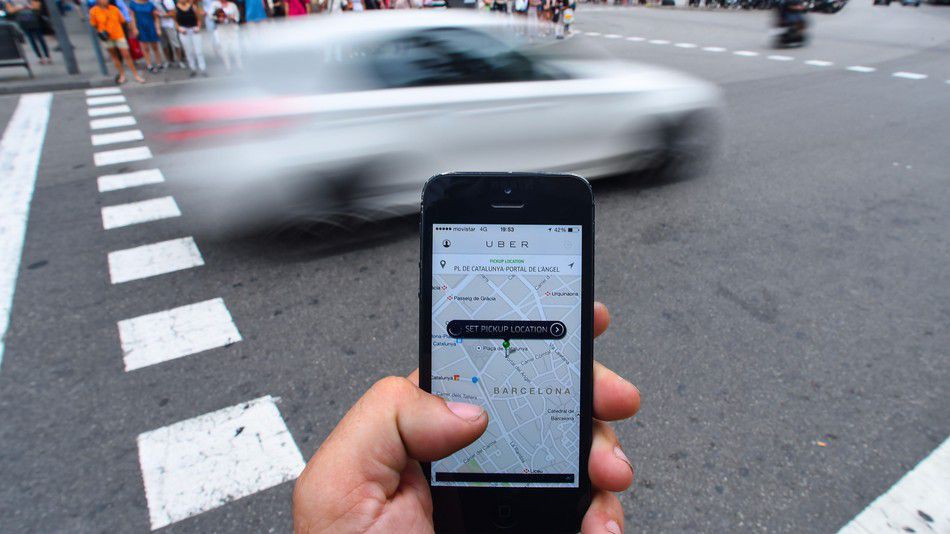Uber’s biggest rival just got bigger
Uber’s new year isn’t off to a great start.
One of the company’s biggest competitors, China’s Didi Chuxing, is buying another ride-hailing company from Brazil, 99.
The deal is set to make Didi even bigger and pits its services against Uber in yet another country. That’s not something Uber needs as it tries to get back on track after a rough 2016.
SEE ALSO: Uber is selling off its auto-leasing business
China’s Didi Chuxing confirmed the acquisition on Wednesday this morning. It was first reported by TechCrunch.
“The success that founders and team of 99 have achieved in Brazil embody the very spirit of entrepreneurship and innovation in the LatAm region. Building on the deep trust between our two teams, this new level of integration will bring to the region more convenient, value-added mobility services,” Chen Wei, founder and CEO of Didi, said in a statement. Read more…More about China, Uber, Brazil, Ride Hailing Apps, and Didi Chuxing
…

Image: david ramos/getty images
Uber’s new year isn’t off to a great start.
One of the company’s biggest competitors, China’s Didi Chuxing, is buying another ride-hailing company from Brazil, 99.
The deal is set to make Didi even bigger and pits its services against Uber in yet another country. That’s not something Uber needs as it tries to get back on track after a rough 2016.
China’s Didi Chuxing confirmed the acquisition on Wednesday this morning. It was first reported by TechCrunch.
“The success that founders and team of 99 have achieved in Brazil embody the very spirit of entrepreneurship and innovation in the LatAm region. Building on the deep trust between our two teams, this new level of integration will bring to the region more convenient, value-added mobility services,” Chen Wei, founder and CEO of Didi, said in a statement.
Uber declined to comment.
The deal is not good news for Uber, which also operates in Brazil. The deal doesn’t necessarily crush Uber’s operations, but it definitely makes it harder for Uber to grow its user base globally — something it needs to do as it looks to pull out of its 2016 tailspin and start turning a profit.
Didi raised $4 billion in December, giving it a fresh dose of financing to help it grow.
Uber has already bowed to Didi’s power before. After years of trying to grow its operations in China and compete with Didi, Uber surrendered to its rival and agreed in August 2016 to a merge its China business with Didi. Uber owns 20 percent of the new combined entity and received a $1 billion investment from Didi, so it wasn’t a complete loss. But it was a clear sign that Uber must make strategic decisions that may not mean global dominance.
As New York Times reporter Mike Isaac notes, the ride-hailing industry is a messy one.
a brief recap: Uber fought Didi in china for years, then Uber backed out of China but took a large stake in Didi and remains a major shareholder. Now Didi is fighting Uber in Brazil via 99.
Ride-hailing is a weird market, with frienemies everywhere
— ಠ_ಠ (@MikeIsaac) January 3, 2018
Uber and Didi have financial stakes in each other’s success, and yet their competition in Brazil just jumped to another level. Meanwhile, Uber is battling Google in court over its self-driving car company Waymo. Uber’s biggest U.S. rival, Lyft, finally started operating internationally with the launch in Toronto, Canada last year and has reportedly gained ground in the U.S. Didi also invested in Lyft back in 2015 and launched cross-platform services in the U.S. in 2016.
One bright light for Uber is that it now has two experienced executives at the helm. Dara Khosrowshahi, formerly CEO of Expedia, took the wheel from controversial cofounder Travis Kalanick in September. He hired a second-in-command Barney Harford, former CEO of online travel site Orbitz, as Uber’s new chief operating officer.
That team will need to decide how and where to move forward— legally, of course.

